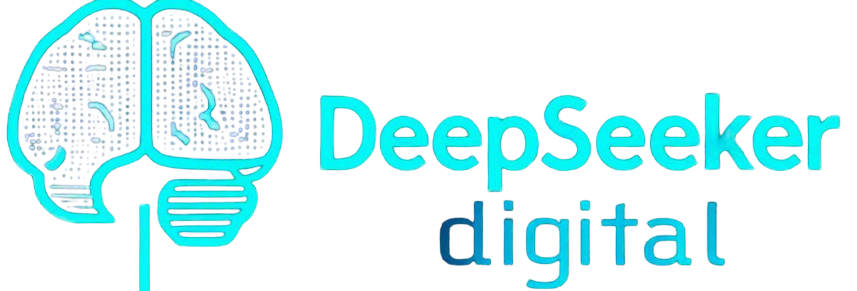Mitigating Disease -> Lifelong Brain Health

DeepSeeker Digital's flagship product, Cognitive Footprints, emphasizes the importance of maintaining a sharp mind as you age,
showing how staying on top of your cognitive health can help reduce the risks of dementia and Alzheimer's.
It highlights how simple things like mental exercises and regular check-ins with your cognitive abilities can slow down decline and improve overall brain function.
Boost Cognitive Health While Having Fun
Who says protecting your brain has to be all doom-and-gloom? At DeepSeeker Digital, we believe keeping your mind sharp as you age can be a fulfilling, joyful experience—and we’ve got science to back us up! Our flagship product, Cognitive Footprints, isn’t just about brain scans and data; it’s about empowering YOU to take charge of your cognitive health so you can keep living your best life—independently, actively, and with plenty of stories to tell. So, grab your journal (or keyboard) and let’s dive into the fascinating—and fun—ways that writing can keep your mind young and thriving.
Your Brain's Secret Workout Plan
If your brain were a muscle, writing would be its gym membership. Turns out, putting pen to paper or fingers to keyboard activates parts of your brain involved in language, memory, and creativity—all of which help keep dementia at bay. Think of writing as a mental workout that sparks new connections and boosts your brain’s resilience.
Fun Ways to Start
- Reflecting on your day, jotting down your thoughts.
- Writing about last night's bizarre dream can sharpen memory and critical thinking.
- Craft an epic tale about an unlikely superhero (a grandma who knits crime-fighting capes, perhaps?)
- A heartfelt handwritten letter isn’t just meaningful—it’s also a sneaky way to keep your brain engaged.
A Brain-Protecting Secret From Nuns
Let’s talk about the legendary Nun Study—a fascinating research project that showed how writing could help stave off Alzheimer’s. Researchers found that nuns who wrote complex and insightful autobiographies early in life were far less likely to develop cognitive decline decades later. The takeaway? Thoughtful, detailed writing can literally safeguard your mind in the long run.
Typing and Writing Boost Memory (Hint: It’s Like Magic)
Every time you write or type about your day—whether in a diary or on a blog—you’re giving your memory a workout. Reflecting and recording daily events prompts your brain to revisit experiences and reinforce memories. It’s like rewinding a movie, making the storyline sharper each time you watch it.
Cognitive Reserve: The Brain’s Backup Plan
Ever heard of cognitive reserve? Think of it as your brain’s safety net—a stockpile of resilience that lets you handle mental challenges even as you age. Writing, typing, reading, and solving puzzles are all ways to build this reserve, making your brain tougher and more adaptable.
Bonus: Lifelong learning isn’t just good for your health—it’s also incredibly fun. And that’s a win-win!
